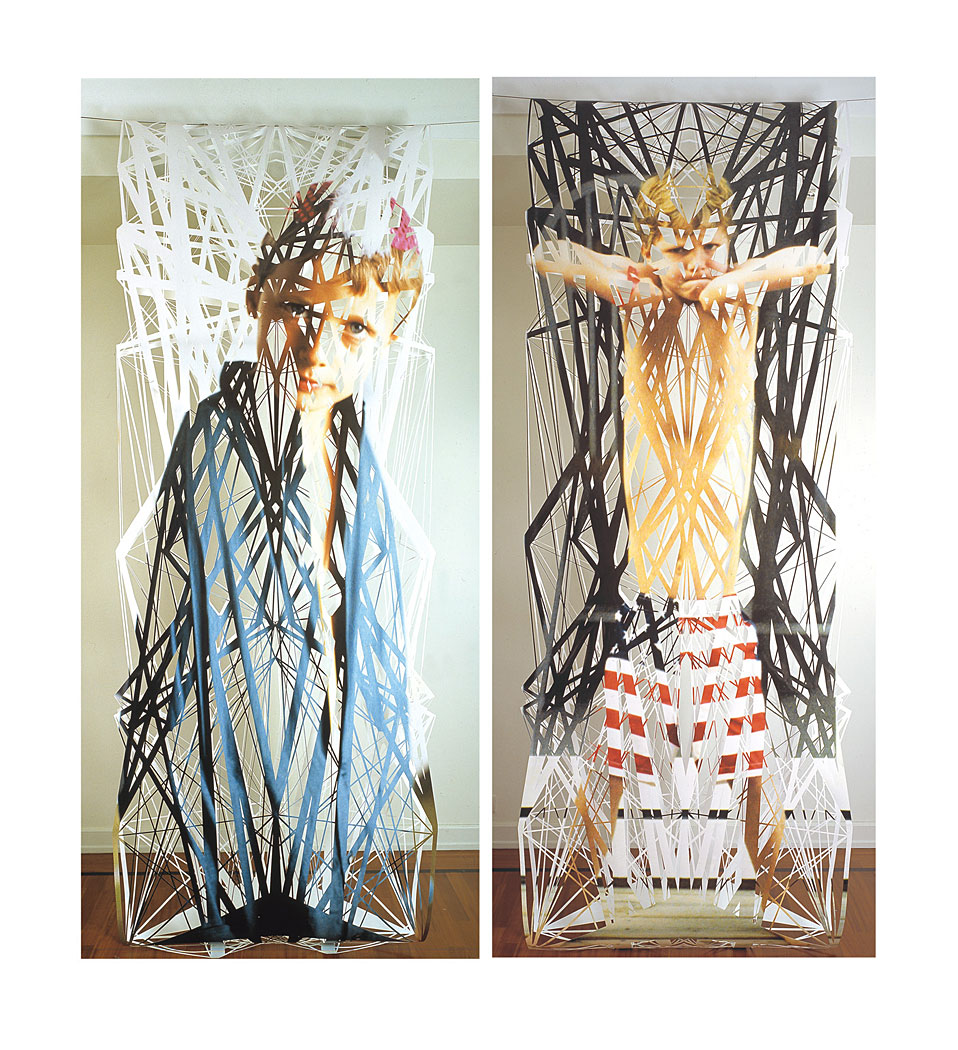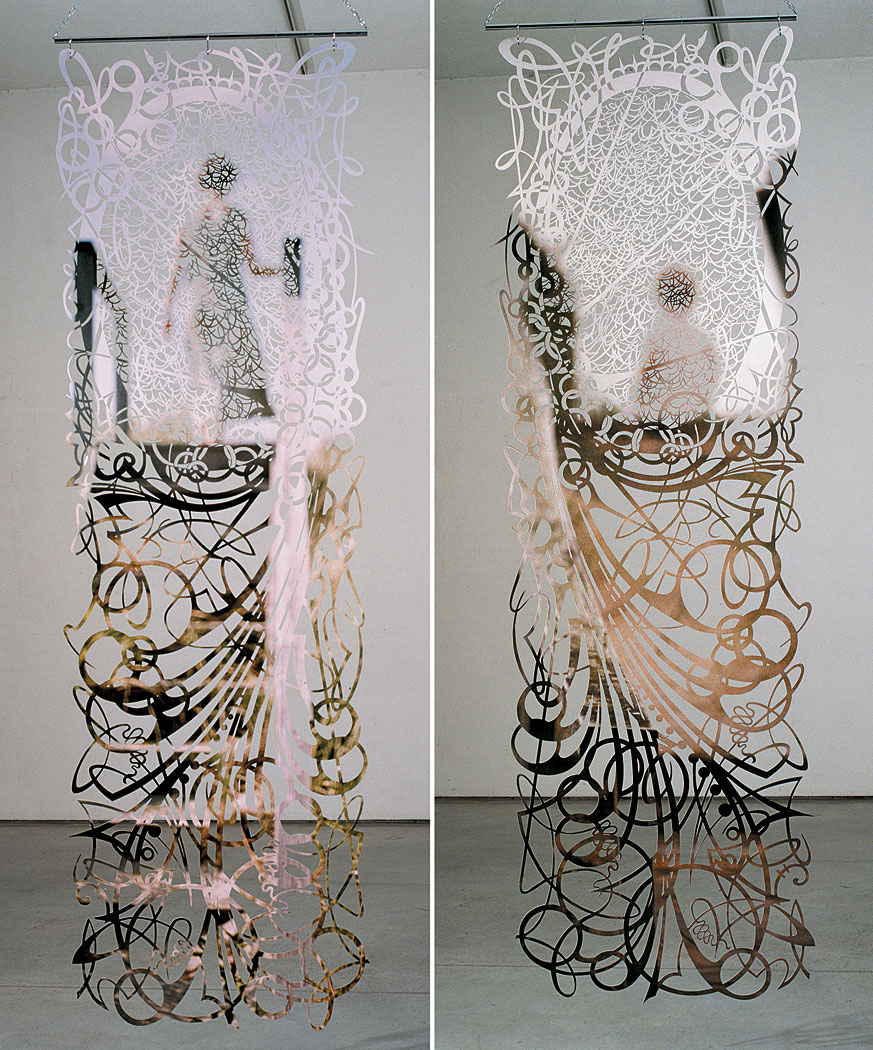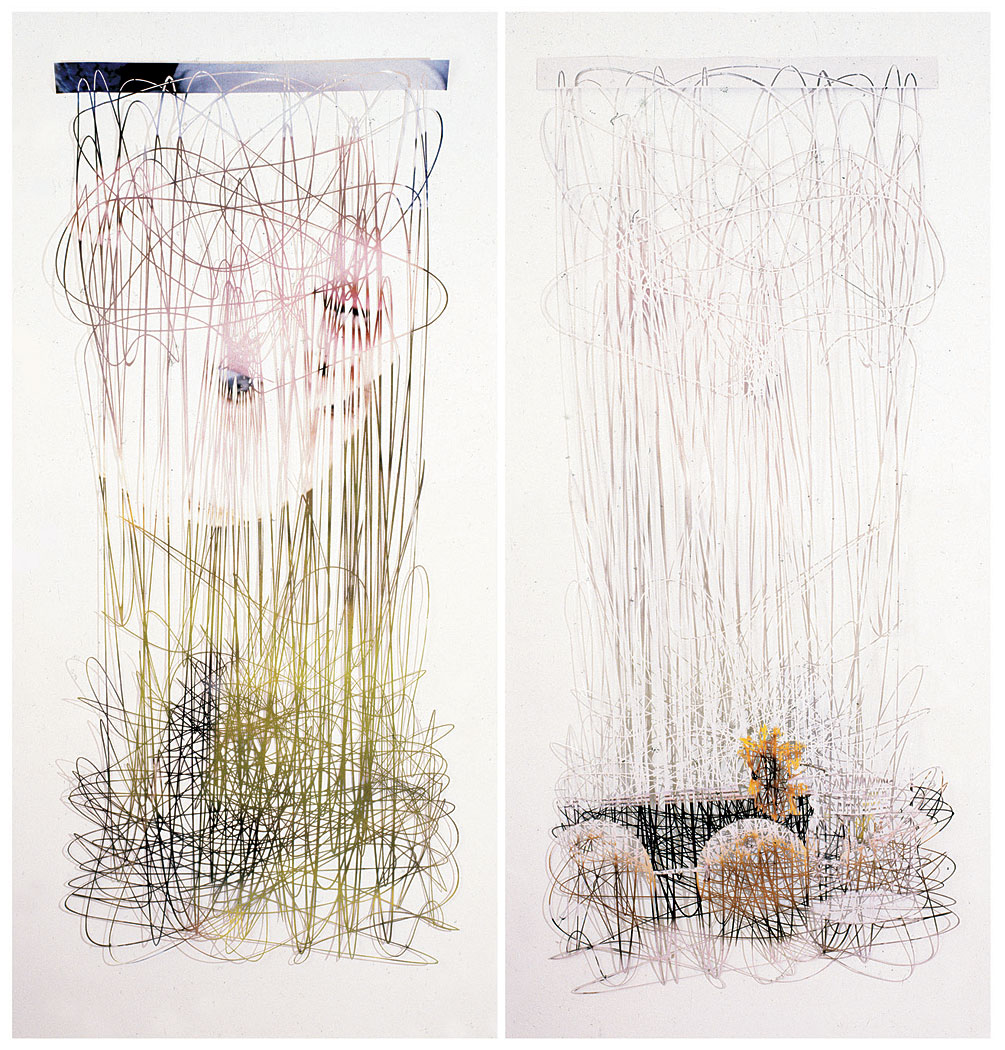O (2000), Ashes to Ashes (2002), Dennis and Zoo (2004)



One single 6.5 m cut-out of two joined snapshots of two boys, one American living in NY, and the other an Italian/American living in Milano. Dennis wears the American flag, and is frozen in a strong-man pose looking defiantly at the camera. Lorenzo, wearing a green shirt and a fuscia sequin hat with a white feather (an off Italian flag) yields and looks knowingly and seductively into the camera.
Two complicated boys will be remembered by these alien poses. This absurdity pushes into stark visibility the way photography is essentially at odds with memory. While snapshots obey the inflexible rules of non-fiction, memory is malleable, sensual, fuzzy, essentially fictional, and highly vulnerable. The fixed and powerful image of the photograph, over time, erodes our ability to remember and becomes a counter-memory (Barthes), or what I call a caricature of a moment...
...Like much of my work, this piece is photography, drawing, and sculpture all at once, and looking at the photograph entails the broader consideration of how the image has been re-contextualized. The challenge hybrid photo practices pose to contemporary discussions of photography point to a problematic sore spot in past and present discourses on photography and art. I do what everybody on this planet does with a camera when he/she wishes to hold on to a moment—I take a roll of snapshot and then go to 1-hour photo to develop it. And my problems (and not just mine!) start there. The very complex questions that surround the photograph permeate our lives and are, I believe, worth examining in all their aspects-- particularly those that seem most difficult or awkward to address, such as those that relate to family and affection. To choose to remember or to forget in our lives has far-reaching implications, as do the acts of making (cutting, cooking, growing plants, working with primary materials), slowing down time, and remembering, which have become profoundly political because they take a stand and claim themselves as important, as necessary, as approaching extinction. Whether to hold on to these things or to discard them leaves a great many things, from human feelings and experiences to the future of our children, hanging in the balance.
2004